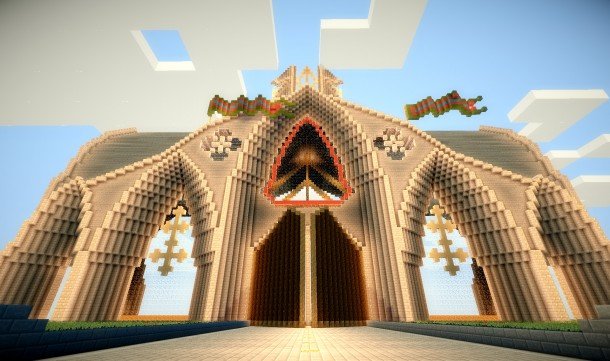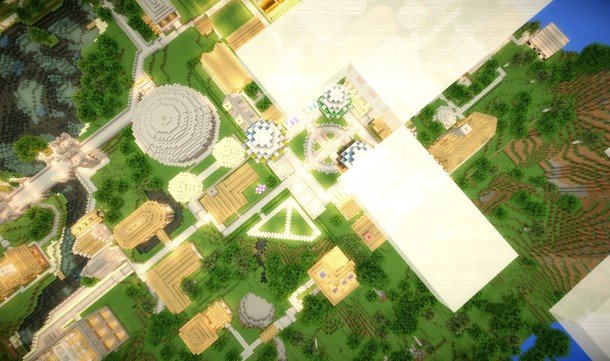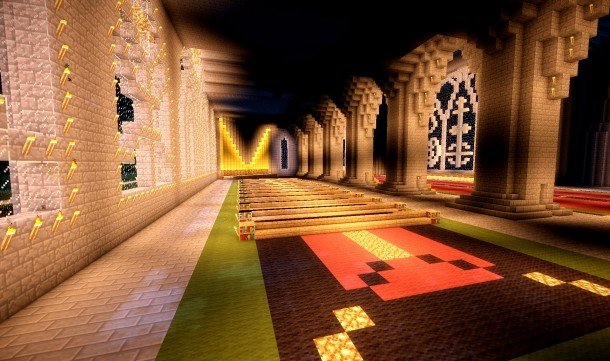The Future of Minecraft: what lies ahead for the all-conquering sandbox game?

“We have a lot of comments from kids that say their parents won't let them buy the game online,” Patrick explains. “So we're looking to produce cards which allow you to buy the game with your pocket money instead.”
Then there's the other major real-world extension of Minecraft: MineCon. Under the creative stewardship of Lydia 'MinecraftChick' Winters, the yearly conventions will continue as relatively small affairs.
“But we are working on an idea to help fans create their own fan events – a kind of TEDx-style programme, where you follow guidelines and apply for the MineCon brand. This year, however, we're working on livestreaming so people can watch MineCon at home.”
While MineCon makes its way to the living room, other staff members at Mojang are hoping to bring Minecraft to the classroom.
“Early on there were teachers contacting us,” says Carl Manneh, CEO. “And one guy, Joel Levin, started showing videos of how he used Minecraft in education. Then a few Finnish teacher students built the Minecraft Edu mod, which gives teachers control of a classroom in Minecraft.”
It's not the only social good for which Minecraft is being used: there's also the recently announced collaboration with the UN.

“The plan is to build 300 public spaces in these problematic areas around the big cities in the world,” Manneh says. The designs for these spaces will be shaped by the input of the local community, invited to build their own vision within Minecraft.
The biggest gaming news, reviews and hardware deals
Keep up to date with the most important stories and the best deals, as picked by the PC Gamer team.
Mojang are keen that their legacy is not limited to a single game, and that's reflected not only in the increasingly ambitious applications of Minecraft but in the other projects underway at the studio. Scrolls is co-founder Jakob Porsér's baby – a card battler designed to exist only in a digital space – while the mysterious 0x10c is Notch's new squeeze: a space exploration and trading game of near-ludicrous ambition.
The company is aware that the more projects they take on, the larger they would have to grow – and they are reluctant to exceed their current intimate headcount.
“We have a few empty seats here, and I think we'll fill those up and not much more,” Notch says. “If we get too many projects and need to hire more we should split up into separate studios and try to keep those teams small I think.”
One alternative to such a drastic future can be seen in their partnership with Oxeye, the developers behind Cobalt. More such collaborations are planned, publishing each game through a centralised Mojang account.
Is this intended to be an indie-fuelled alternative to Steam?
“The free competition on the PC has always been why I find it so appealing,” says Notch. “So I'm a bit torn. I'm a huge fan of Valve, and I think they're doing everything for the right reasons. I just think they're slightly too good at it.”

There are some clouds on the horizon, however. Mojang's success has made it a target, and, currently, they are one of a large number of developers being sued for patent infringement by Uniloc.
“They want a licence fee for all sales, historically as well,” says Carl. “Obviously it's a pain in the neck. It's something that when starting this company we never imagined we'd need to handle. We've gone into a group of defendants and there is a firm in the US that represents all of us. So we just pay a huge sum of money every month to this lawyer firm and hopefully they'll win.”
How bad would it be for Mojang if they lost?
“Not disastrous in a way that we'd have to put down the company,” says Carl. “I think the monetary effect wouldn't be as bad as just... losing faith in humanity, really. But obviously the money would not be fun either.”
Mojang's battle here is not simply for their own well-being – the precedent set by Uniloc's victory could suffocate indie development as a whole. Notch's attitude, which he duly Tweeted, is that “Innovation within software is basically free, and it's growing incredibly rapid. Patents only slow it down.”
It's fitting then that the true future of Minecraft is not really in Notch's hands, or those of anyone at Mojang, but in the hands of its community, who will continue to chip bits off, build bits on the side, and mould it into countless shapes. The future of the game Mojang made is a game that makes itself.

